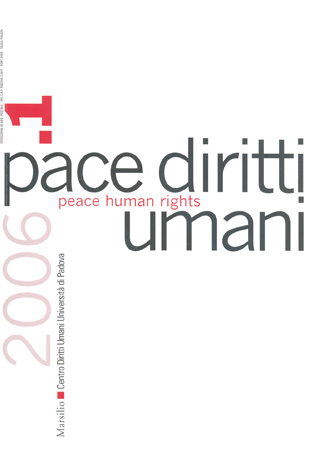Raccolte

L’interpretazione evolutiva della Corte europea dei Diritti dell’Uomo in materia di tutela dell’ambiente
- Contenuto in
- Pace diritti umani - Peace Human Rights, 1/2006
- Tipologia pubblicazione
- Articolo / Saggio
- Pagine
- 125-134
- Lingua
- IT
Evolutive Interpretation about Environmental Protection by the European Court of Human Rights
Serena Giordano
This paper examines the approach of the European Commission and of the European Court of Human Rights to the dealing with cases involving environmental protection during the last years. Although there are no specific provisions of law dealing with the protection of environment contained within the European Convention of Human Rights, the growing importance of environmental rights issues has lead to an increase of the number of cases involving environmental complaints. As a consequence, the Commission and the Court have started to strengthen a new interpretation, based on certain provisions of the Convention as affording at least a degree of environmental protection; this original and «evolutive» interpretation has been created and subsequently improved particularly with regard to Article 8 of the Convention, which provides for the right to respect for «one’s private and family life, home and correspondence». In Lopez Ostra v. Spain and Guerra and others v. Italy the Court said that severe environmental pollution may affect individuals’ well-being and prevent them from enjoying their homes and held that the respondent states have not fulfilled their obligation to insure the applicants’ right to respect for their private and family life, in breach of said Article 8. Currently, most of the early European privacy and home cases involve noise pollution issues; the European Commission and the Court have studied cases of interference with an individual’s right to private life and home as well as the peaceful enjoyment of his property through noise pollution. In such a way, the organs of the European Human Rights system have made renewed efforts to address issues of nature protection through human rights, accordingly it would be now possible to presume that, in the next years, the judges of Strasbourg could be ready to deal with new forms of pollution, as the electromagnetic one.

